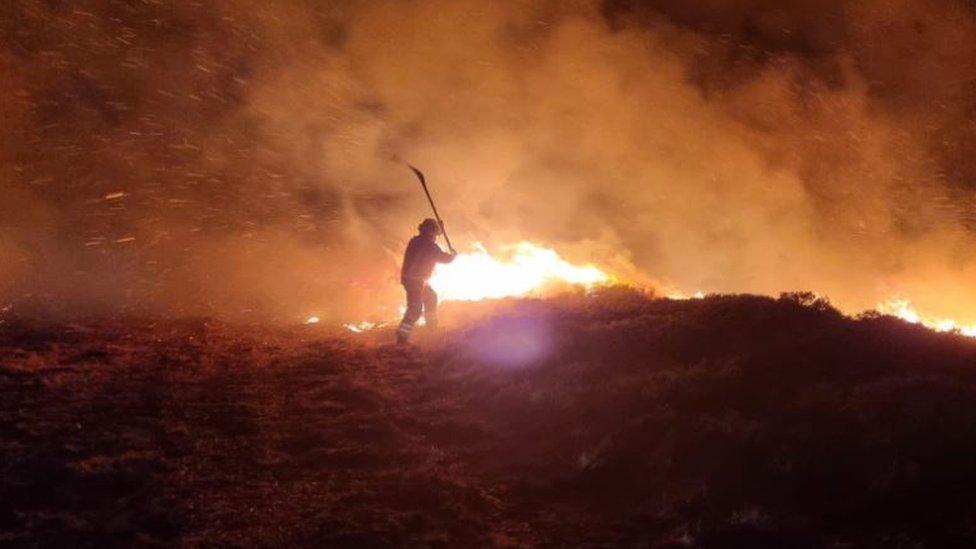Dartmoor blaze: 'Extremely dangerous' fire near Tavistock is out
- Published
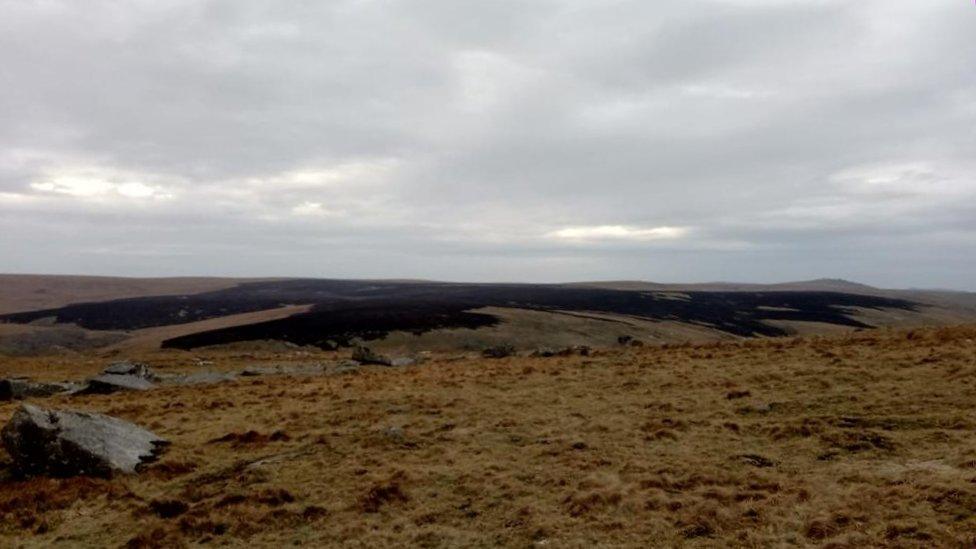
Photo of the damage caused by the blaze at Tavy Cleave
A large blaze which broke out on Dartmoor has been extinguished, fire crews said.
The fire engulfed a 5km (3.1 miles) strip of remote moorland near Tavistock, Devon on Thursday night.
Devon and Somerset Fire Service said the fire was out at about 10:00 GMT and the cause is being investigated.
It described the blaze as "extremely dangerous" due to windy conditions and low visibility. No injuries have been reported.
The fire service said "natural fire breaks" in the area had helped contain the blaze, which burned out on its own overnight.
A spokesperson said the cause of the fire is now under investigation.

Fire service incident commander Mike Porter said natural fire breaks on the moor - including granite, roads and the River Tavy - all helped contain the fire.
"There was a planned strategy to fight the fire defensively with close monitoring overnight," he explained.
Dartmoor National Park said any damage from the fire would primarily be to the surface of the moor because of the "very wet" ground underneath the surface and "regrowth will not be a problem" for the affected area.
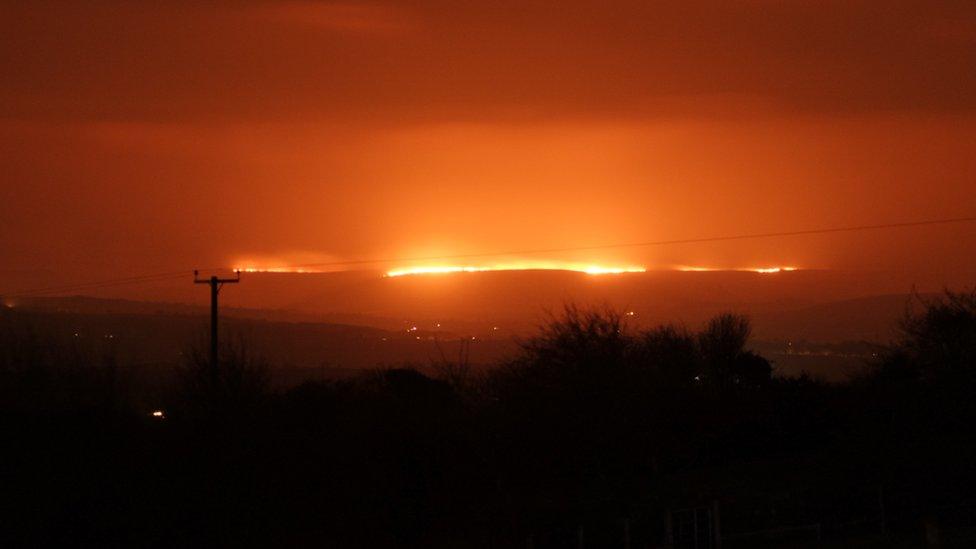
Tommy Ross took this picture from Kit Hill near Launceston in Cornwall

Allow X content?
This article contains content provided by X. We ask for your permission before anything is loaded, as they may be using cookies and other technologies. You may want to read X’s cookie policy, external and privacy policy, external before accepting. To view this content choose ‘accept and continue’.

People could see the flames light up the night sky about 20 miles (32km) away in Plymouth on Thursday evening.
Ten vehicles were used to monitor the blaze overnight, with firefighters also using drones and other spotters to observe the spread.
There have been several wildfires in the South West in recent days, with another three-mile wide blaze near Bodmin, Cornwall on Thursday and a blaze suspected to be caused by arson on a Cornish nature reserve on Tuesday.

'Ingredients for fires'
Wildfire scientist Dr Thomas Smith from the London School of Economics said these incidents were "not unusual" in cold weather, as air temperature is "not particularly important" in flames igniting or spreading.
He said: "The driving or spreading of fire is all about moisture in the air and plants."
He explained current dry winds blowing across England from Europe "favour the conditions for a fire to ignite and spread", as they dry out plant material acting as fuel.
"Then all you need really is a source of ignition with the wind on the moors for a fire to spread," he said.
"There are all of the ingredients right now in the South West for wildfires."

The fire service was forced to operate in "defensive mode", preventing the spread of the flames until conditions improved.
It said some people were seen trying to watch and photograph the fire.
They tweeted: "This is extremely dangerous and certainly not an essential journey! Please stay away from the area for your own safety."
Devon and Cornwall Police confirmed officers had attended the scene following reports of "members of the public gathering".
No fines for coronavirus lockdown breaches were issued, the force said.
The RSPB said it was "highly unlikely" local birds were directly affected by the flames, as it is months before the nesting season begins and birds are very mobile.
A spokesperson added it "remains to be seen" what the longer term implications of the fire are for local habitats.

Follow BBC News South West on Twitter, external, Facebook, external and Instagram, external. Send your story ideas to spotlight@bbc.co.uk, external.
- Published12 February 2021
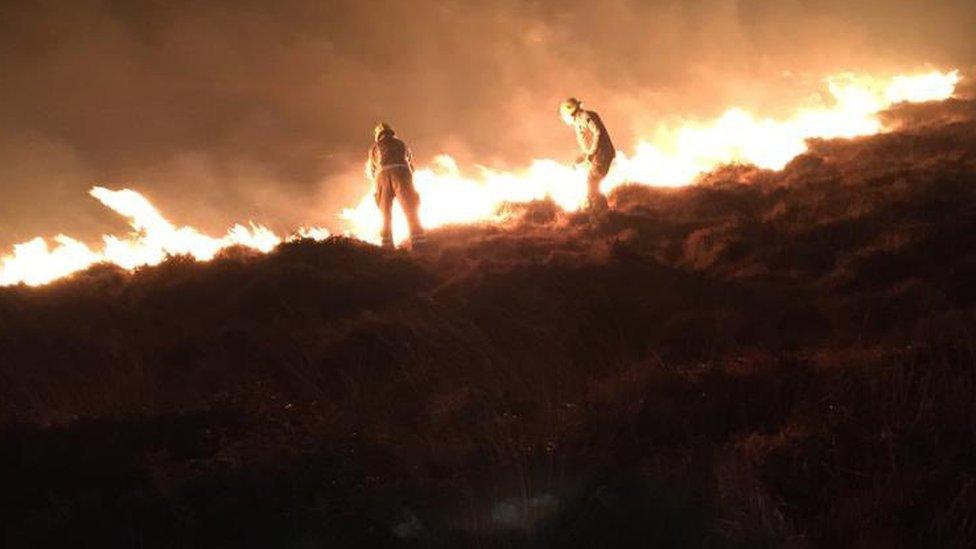
- Published12 February 2021
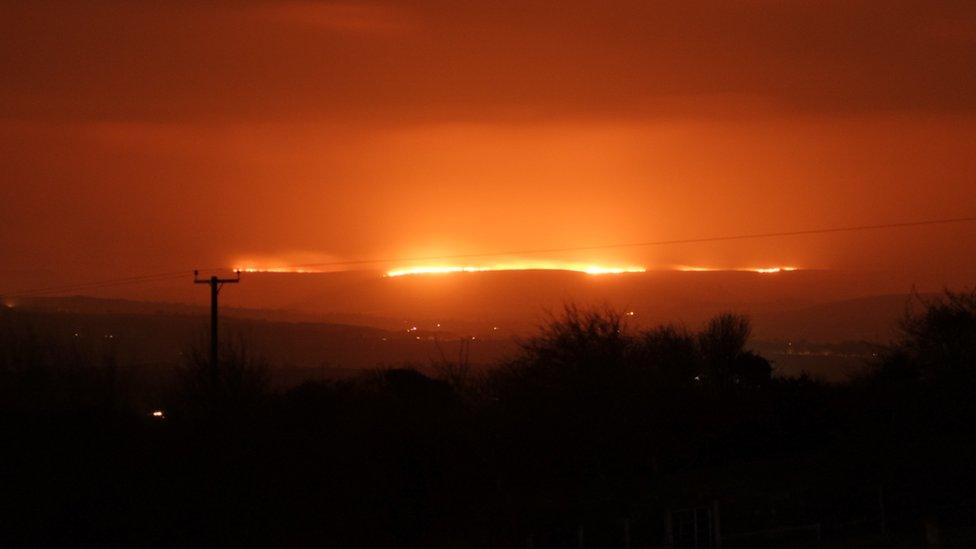
- Published10 February 2021
